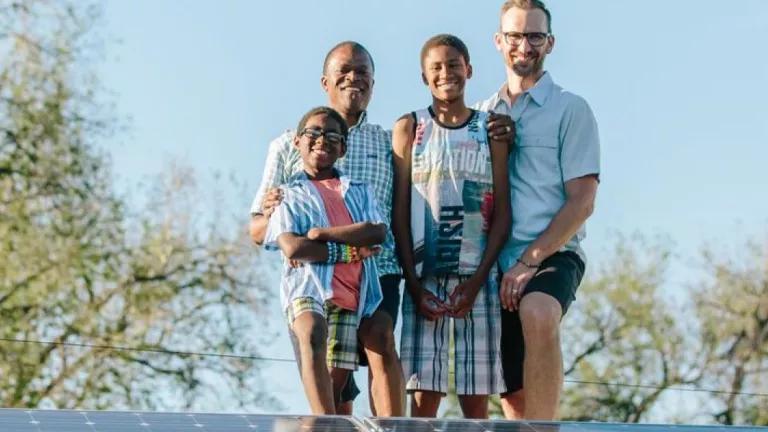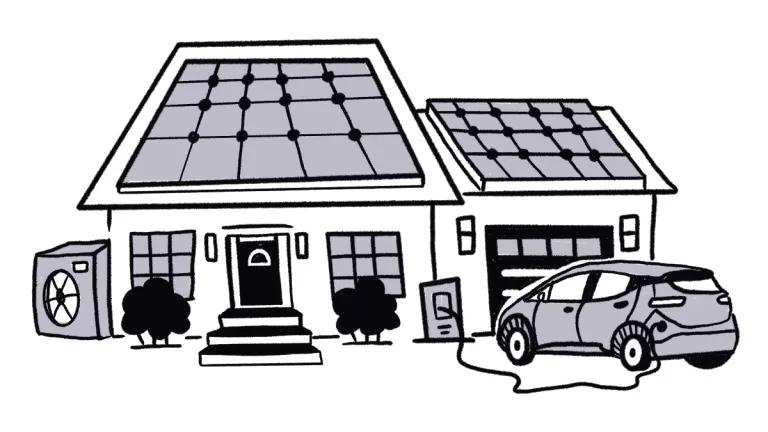
A year ago today, many in the environmental community feared all was lost in the battle against climate change when President Trump announced he was pulling the United States out of the Paris Climate Agreement. But we didn’t get down, we got organized. We committed to ensuring America does its part to cut carbon emissions despite the White House’s backtracking.
We weren’t alone. Hundreds of American mayors from red and blue states alike joined us in decrying the President’s decision. They made it clear they weren’t going to let him speak for all Americans—that their cities were still all in on cutting our country’s climate footprint. These mayors joined our international partners in committing to implement the Paris Agreement goals and to take collective action at the local level to reduce carbon pollution.
Throughout the last year, NRDC has maintained a dogged frontline effort to make America’s cities healthier, safer and more just places to live. Today marks a milestone in the movement to place cities and their residents at the center of mitigating the devastating effects of climate change worldwide.
A New Climate Challenge
NRDC is proud to join with the Bloomberg Philanthropies’ Environment and Government Innovation teams, and Delivery Associates, to launch a $70 million American Cities Climate Challenge.
The Climate Challenge is open to the 100 most populous cities in America. The competition also requires all cities that apply support the goals of the Paris Agreement by signing the We Are Still In declaration, if they haven’t already. The challenge will select 20 cities to support in accelerating urgent climate action with a holistic approach that focuses on buildings, clean energy and sustainable transportation. The initiative will last through the end of 2020.
Mayors recognize they can’t sit on the sidelines; they must tackle climate change and disaster resilience to create livable and prosperous cities. Cities – with their innovative spirit, roll-up-their-sleeve-and-get-to-work mindset, and culture of collaboration – are strong venues to address the complex and intertwined environmental and social challenges we face. The magic happens when cities work together to share and scale up solutions to common problems by sharing information and best practices with their peers.
Cities Are Leading the Way
Perhaps nowhere are the impacts of climate change on people’s health, quality of life and wallets more magnified than in our nation’s cities–from energy use in large buildings to air pollution from traffic and boilers, and runoff pollution at nearby beaches and waterways. But cities are also uniquely positioned to lead on environmental challenges. And many are already rising to the occasion.
For example, after decades of smog and traffic congestion, Los Angeles has embraced a new direction. Support for more efficient, sustainable transportation choices in the region is overwhelming, with 70% of L.A. County voters having approved higher taxes to continue expanding the city’s public transit network that now extends more than 100 miles and provides the third-highest number of daily transit trips in the country. Meanwhile, Seattle, New York City and Portland are taking lessons from Stockholm and London by exploring congestion pricing to make city centers more people-centered and reduce gridlock.
And, the most inclusive cities are focusing on correcting injustices of the past, working with underserved neighborhoods to increase access to housing, green space and climate-resilient infrastructure – recognizing that for a city to thrive, all its residents must be able to breathe clean air, drink clean water, live in healthy and efficient homes and have access to opportunity.
This challenge will help cities build on the progress they are already making by empowering them to win the global battle against climate change by looking to their own backyards.
Expanding on the City Energy Project
The American Cities Climate Challenge also builds on the foundational work of the City Energy Project (CEP). The City Energy Project is a joint initiative of NRDC and the Institute for Market Transformation, and is generously supported by Bloomberg Philanthropies, Doris Duke Charitable Foundation, and The Kresge Foundation.
CEP focuses on curbing climate pollution from one of cities’ largest sources—their buildings—and is boosting energy efficiency in 20 cities across the United States. The project has been hugely successful so far, with several major local victories toward that goal since we launched in 2014. This includes passing one of the nation’s most ambitious energy efficiency policies in the City of Los Angeles and developing private sector challenge programs where buildings commit to ambitious energy reductions, such as the Downtown NOLA Energy Challenge.

What makes City Energy Project so unique and effective is the way we do this work. Like CEP, the winners of the American Cities Climate challenge will receive dedicated in-city staff capacity to focus on this new effort, best-in-class technical support from subject matter experts at national partner organizations, funding for local partners to build programs and awareness, and a robust network of cities where peer-to-peer learning is celebrated.
Capitalizing on Innovation and Ambition
The American Cities Climate Challenge will provide a comprehensive approach to addressing carbon pollution that matches the ambition and innovative spirit of leadership cities to achieve their Paris commitments. The goal is nothing short of a paradigm shift in which community groups, businesses, commuters, utilities, and government agencies all work together toward the shared purpose of a cleaner, greener city to call home.
We are looking forward to supporting the winning cities as they lead a movement to go further, faster to tackle the greatest environmental challenge of our time.



